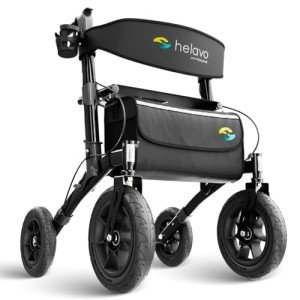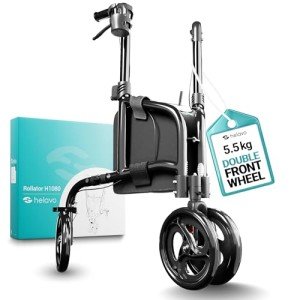See What Medical Walker Tricks The Celebs Are Utilizing
A Comprehensive Guide to Medical Walkers: Enhancing Mobility and Independence
In the realm of healthcare, mobility plays a vital role in rehabilitation and overall well-being, especially for seniors and those recovering from injuries. Amongst the myriad of mobility aids available today, medical walkers stand apart as flexible tools that help with movement and boost self-reliance. This post will look into the types, advantages, considerations, and FAQs regarding medical walkers.
What is a Medical Walker?
A medical walker, often described as a walking frame, is a supportive device created to assist individuals with Mobility Assistance challenges walk with greater stability and ease. Walkers provide a broader base of support compared to walking sticks and crutches, making them perfect for those with balance issues or restricted strength.
Kinds Of Medical Walkers
| Type | Description | Features |
|---|---|---|
| Requirement Walker | A standard four-legged frame without wheels, utilized primarily for stability. | Lightweight, tough, Adjustable Rollator Walker height, suitable for indoor and outdoor use. |
| Wheeled Walker (Rollator) | A walker with wheels on the front legs, permitting easier movement. | Equipped with hand brakes, a seat for resting, and storage choices. |
| Hemi Walker | A walker developed for people who can utilize one arm and require support. | Lightweight and Compact Walker, features a curved manage for easier gripping. |
| Bariatric Walker | Designed for bigger individuals, using increased weight capacity and stability. | Enhanced toughness, larger frame, and supportive features for heavier users. |
| Knee Walker | A distinct choice for those with leg injuries, allowing them to rest the knee. | A platform to support the hurt leg, guiding capabilities, and brakes. |
Benefits of Using a Medical Walker
- Enhanced Stability: Walkers supply additional points of contact with the ground, leading to a more stable walking experience.
- Increased Independence: Users can browse their environment without needing assistance, improving confidence and self-reliance.
- Enhanced Safety: The threat of falls is considerably minimized, as walkers offer support to those with balance concerns.
- Flexible Usage: Many walkers are designed for both indoor and outdoor use, adjusting to various terrains.
- Assistance during Rehabilitation: Medical walkers are invaluable throughout healing from surgeries, injuries, or health problems.
Considerations When Choosing a Medical Walker
When selecting a medical walker, different elements should be born in mind:

| Consideration | Description |
|---|---|
| User’s Condition | Evaluate the person’s strength, coordination, and particular requirements. |
| Devices Weight | Guarantee the walker is lightweight enough for easy handling but sturdy enough for support. |
| Adjustable Height | The walker must be adjustable to fit the user’s height for ideal comfort and functionality. |
| Hand Grip Comfort | Check that the grips are comfortable to hold for extended periods. |
| Weight Capacity | Make sure the walker can support the user’s weight, especially for bariatric walkers. |
| Storage Needs | Figure out if extra features like baskets or trays are essential for bring items. |
Often Asked Questions (FAQs)
-
How do I identify if I need a walker?If you experience difficulty in preserving balance, feel unstable walking, or need assistance on flat surface areas or slopes, it’s recommended to consult a healthcare expert for an assessment. Can I utilize a walker outdoors?Yes, specially developed
-
walkers with bigger wheels(wheeled walkers or rollators)are suitable for outdoor usage and can handle numerous surfaces effectively. How do I keep my walker?Regularly examine the walker for loose parts, guarantee wheels are oiled if
-
relevant, and clean it as required. Consult
the manufacturer’s standards for specific maintenance instructions. Are walkers covered by insurance?Many insurance prepares deal coverage for walkers, however it is necessary to contact your service provider to comprehend your particular policy -
details. Can a walker assist with physical therapy?Yes, using
a walker can support rehabilitation efforts by providing stability throughout exercises advised by physiotherapists. Medical walkers are vital tools that not -
just facilitate movement and independence but also substantially enhance the lifestyle for individuals facing mobility difficulties. With different types offered, picking the right walker is
important to fulfilling individual requirements. The journey to restoring mobility can be overwhelming, however with the right devices and support, people can overcome barriers and reclaim their self-reliance. By comprehending the types of walkers, their benefits, and important considerations, users can make educated choices– leading to a safer, more positive method of moving through life. Whether it’s a rollator for outdoor adventures or a simple walker for indoor navigation, the right walker can open doors to newfound freedom and improvement in every day life.

